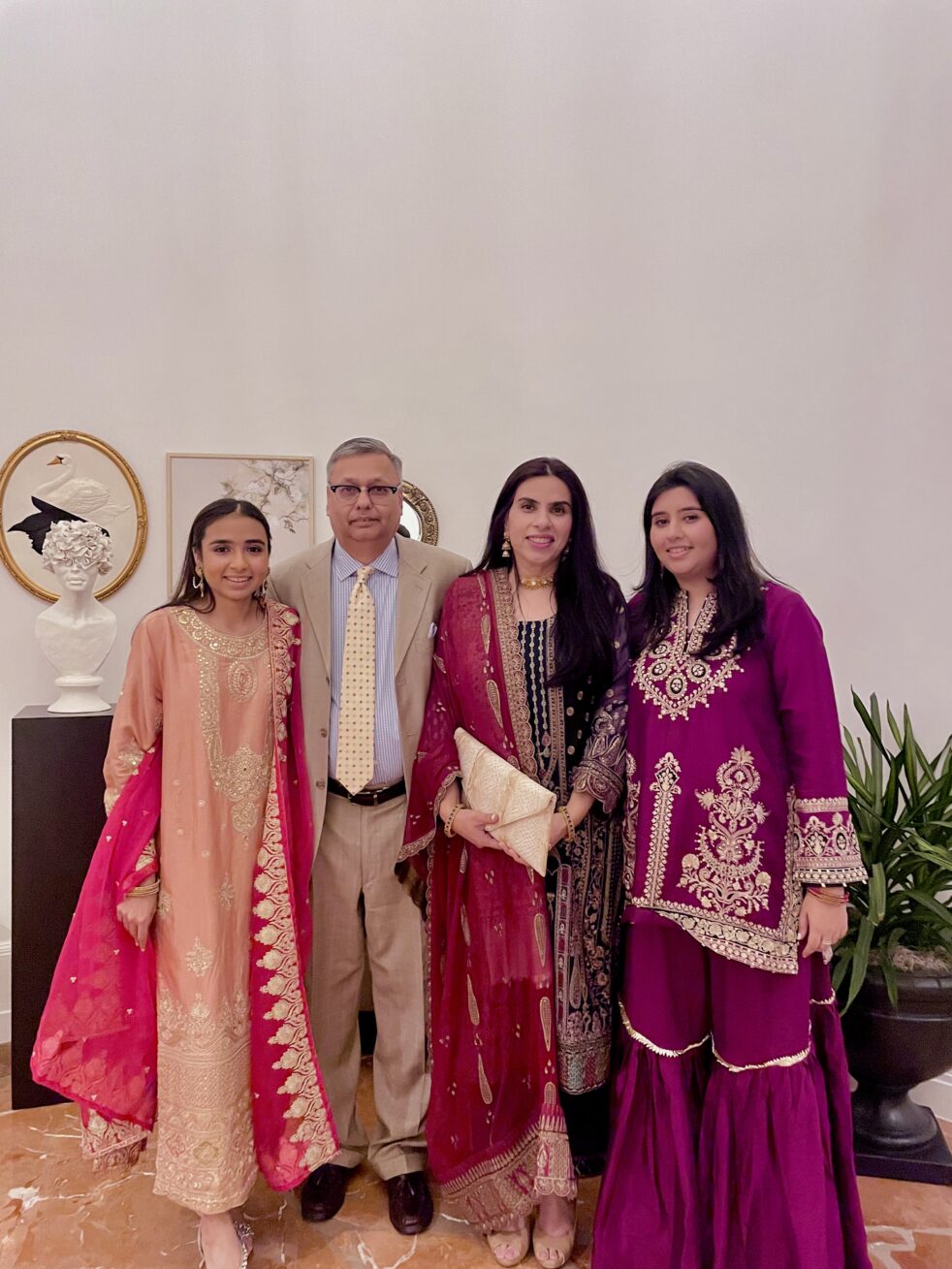One of my favorite poems, “Dreaming in Gujarati” by activist and poet, Shailja Patel perfectly captures the ethos of culture, offering a referendum on the essential role language plays in defining identity and personhood.
One of the verses I keep going back to recently, poignantly states, “If we cannot name it, does it exist? When we lose language does culture die? What happens to a tongue of milk-heavy cows, earthen pots, jingling anklets, temple bells, when its children grow up in Silicon Valley to become programmers?”
As a “third culture kid,” I often find myself at a nexus of being Pakistani, yet American and simultaneously, American, yet Pakistani. The popularized narratives about first and second generation immigrants revolve around their navigation of the third culture experience and how they find ways to balance different aspects of their identity. For me, understanding my heritage and existence as part of the Pakistani diaspora hasn’t been particularly difficult. Instead, it is the continuation and preservation of my culture that poses greater uncertainty.
We make sense of new places and cultures by comparing and contrasting them to what we already know. I observe this tendency in my parents, who immigrated to the United States in 2011. During our vacation to Turkey this summer, they compared the mountains of Cappadocia to Murree, a popular hill station in Pakistan we often visited as a family during my childhood. Picking up singular words on signage around the bustling markets of Istanbul, my mother was able to connect with our tour guide by offering parallels between Turkish and Urdu.
I, on the other hand, see San Francisco in the brightly painted houses sitting atop the Bosphorus River and reminisce on my time spent hiking the Rocky Mountains in Colorado with my cousins while driving through the valleys of Cappadocia. After spending my formative years in the United States, I make sense of the world differently than my parents. And this realization is a reckoning that I am not sure I am willing, or ready, to face.
It is a reminder that what fundamentally defines me as a person may get lost in a larger void, that an entire way of life may perish before I get the chance to pass it on to my children. I suppose in a way I feel a responsibility to protect this sense of belonging. But with every question posed to me in Urdu that I answer in English and every street I can no longer recognize in my hometown in Pakistan, I worry that my identity is slipping away and with it, hundreds of years of heritage.
One of my best friends and I have a recurring discussion about medical anthropology and global health. Like clockwork, every Face-Time call witnesses snippets of tension as we unpack what it means to engage with different cultures as part of one’s work. In this dialogue, I fiercely defend the autonomy of indigenous communities and am somewhat reluctant towards any external collaboration, especially from Western researchers.
I could argue that it is my people’s recent history with colonialism that contributes to my hesitation, but I think it is more so an innate desire to preserve what was built over centuries and protect it from exploitation. Albeit, that may just be a fancy way to say that I am a gatekeeper. However, I think that this sense of responsibility I feel is different from people who actively live in their countries of birth. They are inundated with their culture, living and breathing alongside it. Shaping it and at the same time, being shaped by it. And because I don’t particularly have that same lived experience in suburban Georgia, I am busy worrying about how I will do justice to so much history as I pass it from my generation to the next.
To add to it all, years of growing up in white-dominated spaces, where I was often the only Pakistani-American and Muslim, created a tokenized version of my identity. And that tokenization meant that I felt responsible for properly representing the entirety of 231.4 million Pakistanis and 1.8 billion Muslims. But in bearing such an expectation, I created an outward monolith of my culture, hoping to portray my people in a positive light, but instead portraying them in a homogenous one. The reality that my experiences are only my own and untangling that notion from how I interact with my own culture and identity has taken years to unlearn and will continue to take time.
I started writing this piece in my hotel room from the Sultanahmet District of Istanbul surrounded by hundreds of years of heritage and rich cultural history. From the old city walls still standing from the time of the Roman Empire to the elaborate mosques built by the sultans of the Ottoman Empire, Turkish culture has changed and adapted over the years. In this city, I realized that maybe it isn’t the job of one person to preserve and represent their culture, and that responsibility may be too large for any one individual to shoulder.
So as I see these new places, I remind myself of the vivacity of culture, its resilience and ultimately, its astounding ability to ebb and flow dynamically with its people.
